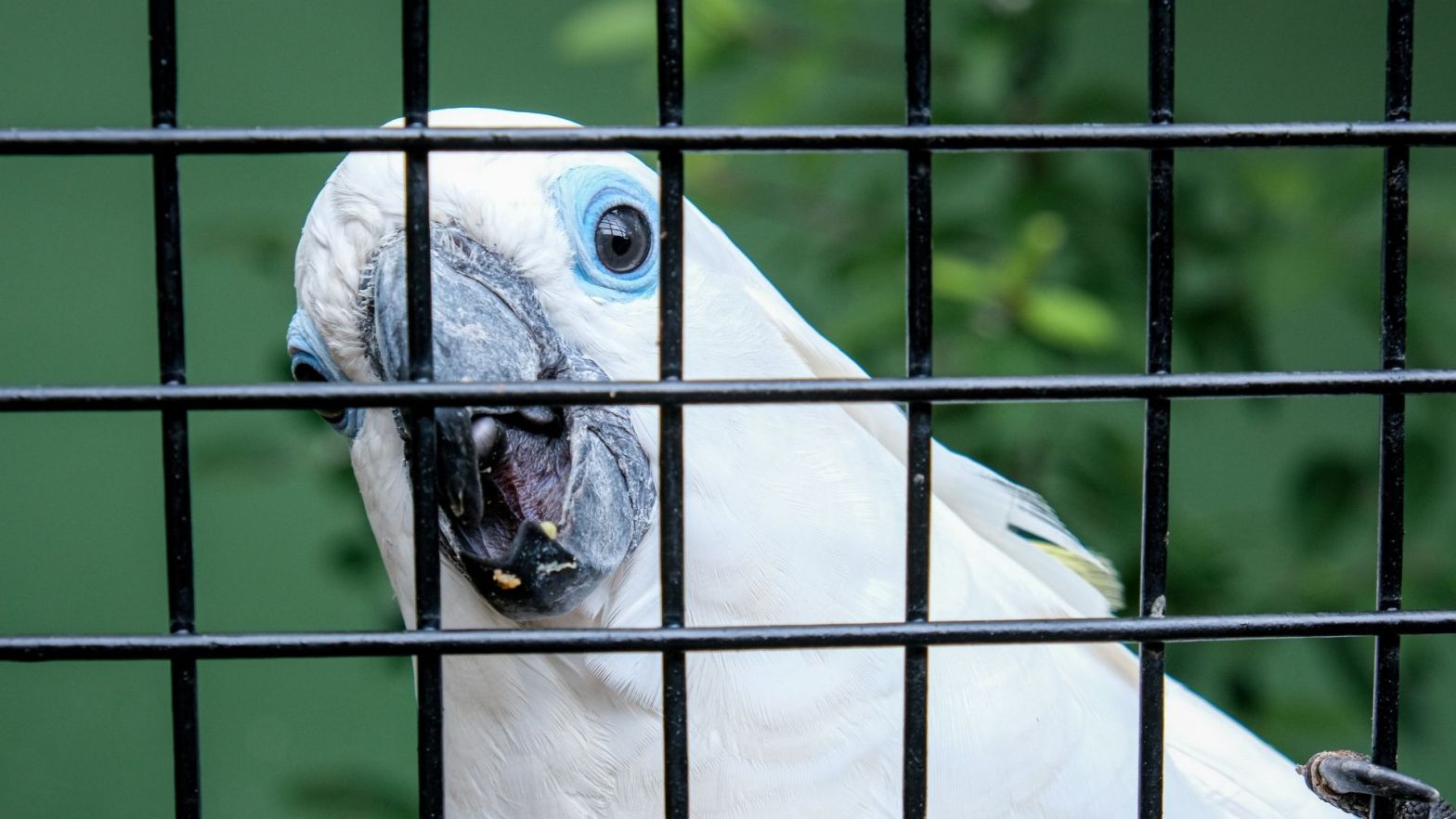Blue-eyed Cockatoo Cacatua ophthalmica
Vulnerable
Location: Papua New Guinea
The Blue-eyed Cockatoo inhabits tropical lowland rainforest up to an altitude of 1000 m. Although it occurs in disturbed forest including degraded forest and gardens, they presumably rely on intact forest with large trees for nesting (Dutson 2011).
Rapid deforestation of #PapuaNewGuinea for #palmoil plantations has caused significant loss of habitat for the vulnerable Blue-eyed Cockatoo. Tell the brands destroying their home you won’t buy their products! #Boycott4Wildlife
Tweet




Rapid conversion of lowland forest to oil plantations over the last thirty years is likely to have caused a significant loss of breeding habitat. The major oil palm companies have committed to no further forest clearance but there is a risk that smaller companies will clear forest for oil palm. Industrial logging continues, as does clearance for subsistence gardens by the growing local populations. About 35% of habitat thought to be suitable for this species was cleared in 30 years or three generations (Buchanan et al. 2008). This species is listed as Vulnerable because remote-sensing techniques indicate that the lowland forest on which this species depends for nesting has been cleared at such a rate that the population is likely to be undergoing a rapid decline. The rate of forest loss has slowed recently, and the species may be declining at a slower rate into the future.
Rapid conversion of lowland forest to oil plantations over the last thirty years is likely to have caused a significant loss of breeding habitat to the Blue-Eyed Cockatoo. The major oil palm companies have committed to no further forest clearance but there is a risk that smaller companies will clear forest for oil palm.
IUCN Red List
Further Information
BirdLife International. 2018. Cacatua ophthalmica. The IUCN Red List of Threatened Species 2018: e.T22728429A132032417. https://dx.doi.org/10.2305/IUCN.UK.2018-2.RLTS.T22728429A132032417.en. Downloaded on 31 January 2021.

Support the conservation of this species

How can I help the #Boycott4Wildlife?
Contribute in five ways
1. Join the #Boycott4Wildlife on social media and subscribe to stay in the loop: Share posts from this website to your own network on Twitter, Mastadon, Instagram, Facebook and Youtube using the hashtags #Boycottpalmoil #Boycott4Wildlife.
2. Contribute stories: Academics, conservationists, scientists, indigenous rights advocates and animal rights advocates working to expose the corruption of the palm oil industry or to save animals can contribute stories to the website.
3. Supermarket sleuthing: Next time you’re in the supermarket, take photos of products containing palm oil. Share these to social media along with the hashtags to call out the greenwashing and ecocide of the brands who use palm oil. You can also take photos of palm oil free products and congratulate brands when they go palm oil free.
4. Take to the streets: Get in touch with Palm Oil Detectives to find out more.
5. Donate: Make a one-off or monthly donation to Palm Oil Detectives as a way of saying thank you and to help pay for ongoing running costs of the website and social media campaigns. Donate here








